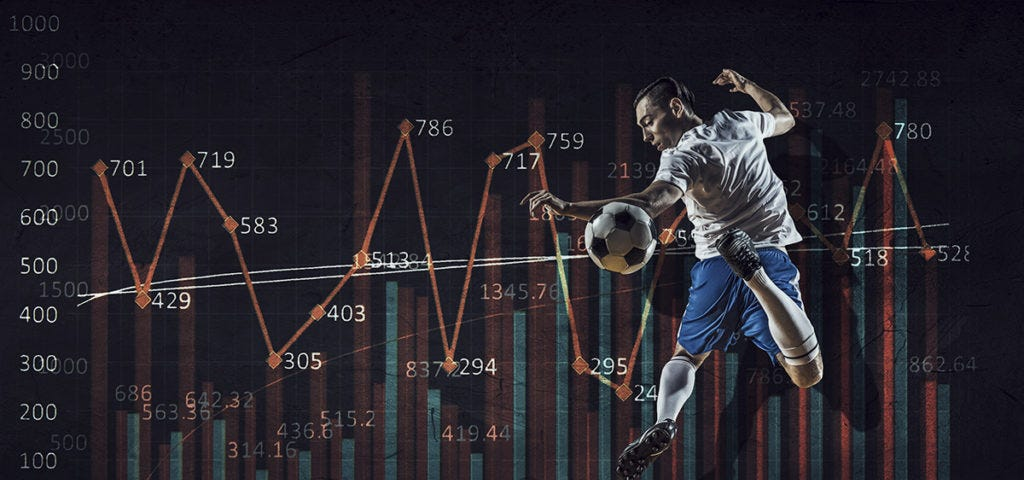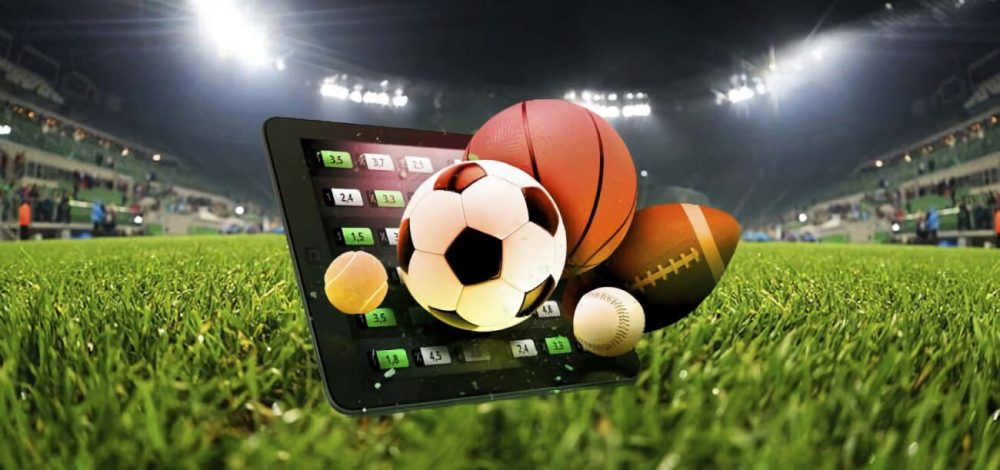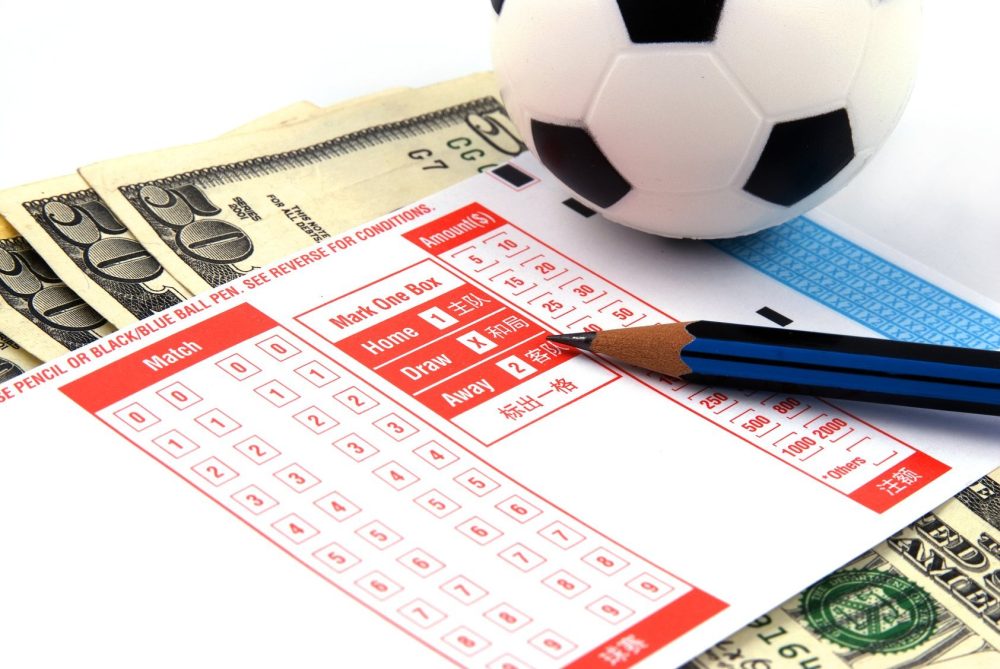
Immerse yourself in the fascinating world of sports predictions. Our blog offers a wide range of expert analysis and useful resources to help you make informed and well-informed decisions. With our help, you can not only increase your winnings, but also significantly improve your skills in the world of betting, which will certainly lead to greater success and increase your skill level. Don't miss the chance to become a part of our friendly community, where you can share your experience and get access to valuable insights that will help you become a true professional in the world of sports forecasting!
Read moreThen you have come to the right place! Do you want to learn more about sports predictions? On our blog, we share the most up-to-date and accurate predictions on popular sporting events that take place around the world. Whether it's soccer, basketball, hockey or even cybersports, we closely follow all trends and are ready to share our expert opinions and analysis. Our team of professionals has a wealth of experience in sports analytics, and we take pride in providing our readers with valuable information. Join our growing community of sports betting enthusiasts, get useful tips and start earning with us! We are confident that our content will help you make informed decisions and increase your chances of success.
Learn more

Immersing yourself in the world of betting involves studying strategies, numbers, and analytics, especially when it comes to predicting totals.

Parisian mathematician Abraham de Moivre in the 18th century calculated the probability of a coin landing on heads. A bettor in the 21st century calculates the probability of “Aston Villa” winning against “Tottenham.” The only difference is the scale of the data. One used a coin, the other – dozens of factors. To understand how …

Live sports betting is not just a game of chance, but a dynamic analysis of what is happening in real-time, requiring the player not only to react instantly but also to have a deep understanding of the course of the sporting event. In a world where every action on the field or court affects bookmakers’ …

Sports betting attracts thousands of people with excitement and the opportunity to test their analytical skills. However, for a beginner, the world of betting may seem confusing due to the abundance of specific terms. In this article, we will be your guide to the basic concepts of the world of sports betting. We will explain …

The legalization of sports betting has long moved from the status of a “local experiment” to a massive legal trend. Today, dozens of jurisdictions officially regulate this sphere with strict frameworks, taxes, licenses, and platform control. Each government develops its own supervision scheme, from complete monopoly to a free market with competition among private bookmakers. …

The sports betting industry has long transcended the boundaries of entertainment. The sector has evolved into a self-sustaining ecosystem with a high level of analytics, competition, and financial interests. Within the sports betting environment, one of the key roles is occupied by a tipster – a specialist who analyzes events, makes predictions, and helps others …

Immersing yourself in the world of betting involves studying strategies, numbers, and analytics, especially when it comes to predicting totals.

Parisian mathematician Abraham de Moivre in the 18th century calculated the probability of a coin landing on heads. A bettor in the 21st century calculates the probability of “Aston Villa” winning against “Tottenham.” The only difference is the scale of the data. One used a coin, the other – dozens of factors. To understand how …

Live sports betting is not just a game of chance, but a dynamic analysis of what is happening in real-time, requiring the player not only to react instantly but also to have a deep understanding of the course of the sporting event. In a world where every action on the field or court affects bookmakers’ …

Sports betting attracts thousands of people with excitement and the opportunity to test their analytical skills. However, for a beginner, the world of betting may seem confusing due to the abundance of specific terms. In this article, we will be your guide to the basic concepts of the world of sports betting. We will explain …

The legalization of sports betting has long moved from the status of a “local experiment” to a massive legal trend. Today, dozens of jurisdictions officially regulate this sphere with strict frameworks, taxes, licenses, and platform control. Each government develops its own supervision scheme, from complete monopoly to a free market with competition among private bookmakers. …

The sports betting industry has long transcended the boundaries of entertainment. The sector has evolved into a self-sustaining ecosystem with a high level of analytics, competition, and financial interests. Within the sports betting environment, one of the key roles is occupied by a tipster – a specialist who analyzes events, makes predictions, and helps others …
Soccer predictions give you the opportunity to anticipate the outcome of matches and increase the chances of successful bets.
Working in the field of sports forecasts provides an opportunity to use your knowledge and analytical skills to make a profit. It is a fascinating and dynamic type of activity that allows you to constantly develop and improve.
Predictions on any sport give you an edge in understanding trends and opportunities for profitable bets. This is the key to successful betting.
Sports predictions can be a useful tool for those who are passionate about sports. They help you better understand the dynamics of the game, make more informed bets and have more fun while watching.
There was a moment at the rally when the driver made a maneuver, overtaking his rivals on a tight corner, which led him to victory. This final spurt was a sensation and remained in the memory of the spectators, emphasizing the talent of the driver.
This famous soccer moment will forever remain in history. A player scores the decisive goal, causing a storm of emotion in the stands and in the hearts of the fans. It is an unforgettable event that will inspire generations of soccer players.

Thanks to the sports predictions on this site, I have become much more confident in my bets. Now I regularly get good winnings and recommend it to all sports betting enthusiasts.

★★★★★
The sports predictions on this blog have helped me improve my betting. I can now count on a steady income from my sports investments, which brings me joy and pleasure from betting. With each prediction I become more confident and better at making decisions.

★★★★★
I have been following this blog for a long time and always find accurate predictions on sporting events here. The author really understands the topic and helps me to earn money on betting.

★★★★★